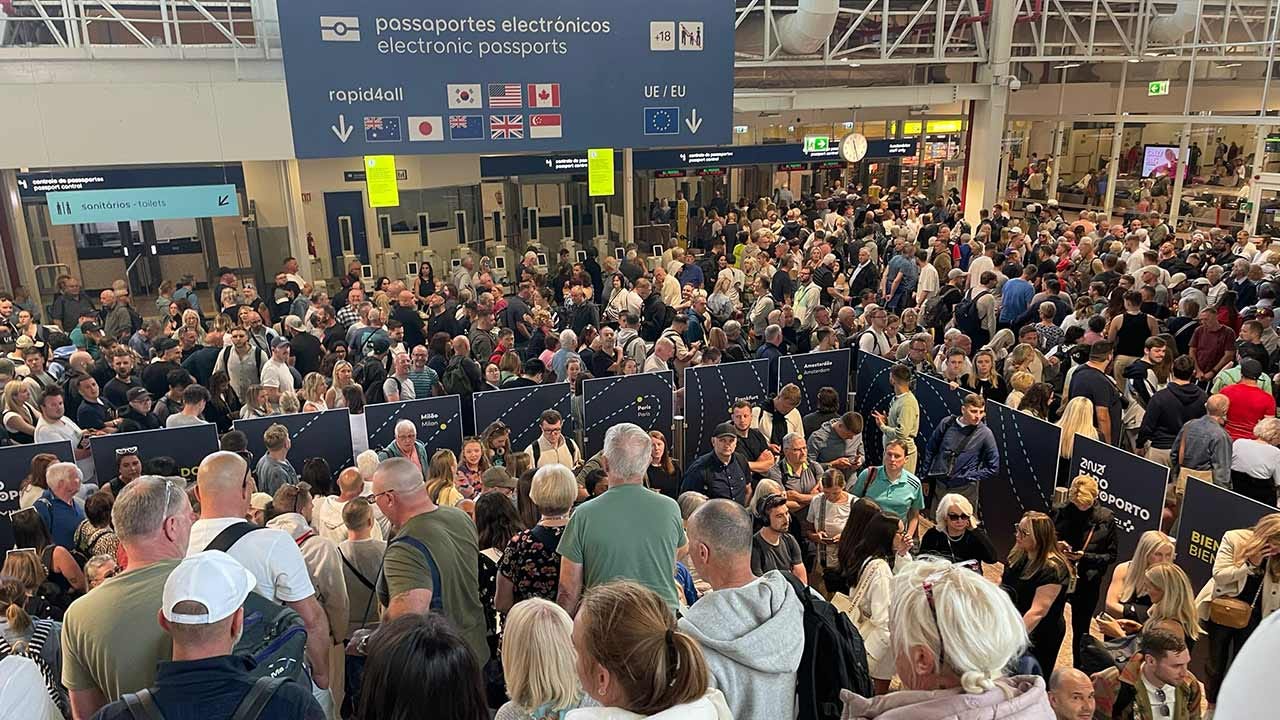New border control system causes airport delays
Authorities claim transition to biometric checks marks “New Era” in border security.

A newly implemented border control system caused long delays for non-European passengers at Portuguese airports today, as the country rolled out advanced biometric checks as part of a Europe-wide digital security upgrade.
The Internal Security System (SSI) confirmed that Portugal has entered “a new era in border management” with the activation of the VIS4EES, PASSE+, and Border Portal systems.
These initiatives are part of the European Union’s broader plan to modernize border control processes and strengthen the Schengen Area’s external frontiers.
The new system requires passengers from outside the European Union to undergo biometric data collection, including facial imaging and fingerprint scans.
While authorities tout the changes as critical for enhancing security and efficiency, the rollout has already sparked significant disruption.
At Lisbon’s Humberto Delgado Airport and Faro Airport, hundreds of travelers were left waiting in queues for hours today.
According to officials, the delays were not due to strikes or technical glitches, but rather the planned introduction of tighter entry procedures for third-country nationals.
Despite the chaos, the SSI issued a statement describing the implementation as a success.
Pedro Moura, general coordinator of the Border and Immigration Coordination Unit, emphasized the importance of the systems in aligning Portugal with cutting-edge European security standards.
“These systems are fundamental to ensuring Portugal operates with the highest levels of security and service at its borders,” Moura said.
Authorities admitted that processing times would increase during the transition period, particularly at international airports.
They advised passengers to consult updates through official digital channels and airport information desks.
The system forms part of the EU’s Smart Borders initiative and integrates with the Entry/Exit System (EES) and the European Travel Information and Authorisation System (ETIAS), both of which are expected to be fully operational by April 2025.
The Portuguese government has invested over €24 million in the effort, including the purchase of nearly 300 self-service kiosks and upgrades to existing passport control infrastructure.
António Leitão Amaro, Minister of the Presidency, assured in a recent visit to Lisbon Airport that Portugal is prepared to meet EU deadlines.
“This is a demanding process, but we are ready,” he said, highlighting the influx of travelers from the UK, US, Latin America, and Asia as a primary motivator.
The delays come despite previous concerns that Portugal was lagging behind in implementing the new system, which raised the possibility of suspension from the Schengen Zone.
However, SSI now affirms that the country is back on track.
While the transition promises long-term benefits in terms of security and efficiency, today’s scenes underline the growing pains of digital transformation, especially when it collides with peak travel periods and understaffed checkpoints.
For now, passengers are being urged to plan ahead and prepare for potential wait times at border control.



